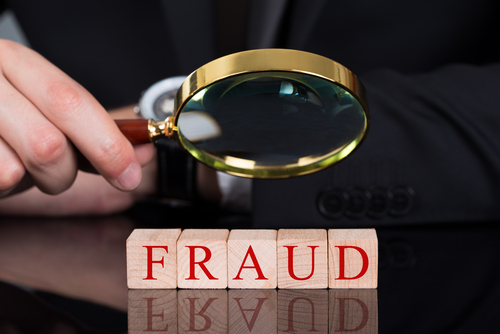What are Fraud Investigations?
Fraud investigations determine whether a scam has occurred. Our team will also gather all necessary evidence to protect you as the victim.
What Is Considered Fraud?
Fraud is defined as misrepresentation with the intention to deceive. For instance, if a company makes a claim about a specific product while knowing that the product does not function as promised, the company is guilty of fraud. This can cause a serious problem and could sometimes result in injury and the loss of life.
What Does a Fraud Investigation Entail?
The start of the process is a meeting between you and one of our investigators. You’ll explain why you want to launch the investigation and the reasons you think you’ve been deceived. You’ll also hand over any evidence that supports the claims you’ve made. Our team will use the information to gather even more evidence to build a solid case. We can conduct background checks, surveillance, asset searches, and business investigations to help settle your fraud case.
Types of Fraud
Insurance fraud: This involves people who make untrue claims to acquire insurance funds. This can also apply to insurance companies who don’t honor claims to avoid paying money owed to individuals.
Financial fraud: This includes public corruption, health care fraud, tax evasion, terrorist financials and telemarketing fraud. If you have given money to people who claimed to be authorized to take these funds and later find out that the organization is not legitimate, our team can help.
Corporate Fraud: Corporate fraud includes issues like damaged reputation as a result of untruths, customer privacy that has been compromised and information theft.
Identify Theft: In an identity theft case, people apply for loans and credit cards in another person’s names. People can also falsely withdraw money from others’ accounts.
Internet Fraud: Internet fraud occurs when criminals try to misappropriate someone’s money or identity via the Internet. The criminal will often try to gain the trust of the victim before stealing the funds or will hack into a person’s account to commit fraud.
Corporate slip and fall: This occurs when people intentionally organize a fall while in a corporate building to file a claim and receive funds. Some people will even put water on the floor to increase the chances of slipping and falling.
Even despite your best efforts, you may be susceptible to fraud. If this occurs, we can collect all the evidence you need for a reputable case.
For additional information check out Managing the Business Risk of Fraud: A Practical Guide, published by the American Institute of Certified Public Accountants (AICPA)), the Association of Certified Fraud Examiners (ACFE) and the Institute of Internal Auditors (IIA). This publication details the approach that experts take to conduct a successful fraud investigation. When you have a better idea of how the investigation will be conducted, you’ll have the peace of mind of knowing that your case will be handled appropriately.
Appropriate Processes for Fraud Investigations
There are several steps involved in a fraud investigation. These help to minimize any disruptions in your life or business or preserve the evidence needed to create a reputable case. Fraud investigations should include:
-confirming the validity of an allegation
-categorizing issues
-defining the seriousness of the allegation
-escalating the issue if appropriate
-closing or resolving the investigation
-listing information that should remain confidential
-defining documentation methods for the investigation
-managing and keeping information and documents
It’s important for you to work closely with a Capital Investigators team member to determine the correct methods for your fraud investigation. You must give us the necessary permission to conduct the inquiry and work with the internal departments of your business, including in-house counsel, senior management, auditing, human resources, and loss prevention.
3 Stages of Fraud Investigation
Detailed planning is essential for a fraud investigation. You can work with one of our trained professionals to make sure that important tasks are completed, including:
Interviews
We will conduct interviews with third-party witnesses, as well as corroborative parties and those who allegedly had a hand in committing fraud.
Collection of evidence
Our team will also recover internal and external documents and records. We will gather phone records, files from personnel, financial records, and IT system access documents. We may also need to perform forensic examinations.
Analysis of evidence
Capital Investigators will categorize and review information that has been collected and analyze the data to test a number of hypotheses. We will go over confidential information and the requests for documents and interviews to draw proper conclusions for the fraud case.
We will report our findings to you expediently. You can also determine the right format for the fraud report to protect you and avoid defamation.
Corrective Actions after Fraud Discovery
To make sure there is little or no legal liability, it is necessary for your company to take corrective action after fraud has been discovered. If you need to maintain confidentiality, it may be pertinent to make your move before the investigation is over. Doing this before the case has closed could entail suspending or reassigning a worker or beginning legal action to make sure certain assets remain intact.
Once the investigation is complete, you can make a criminal referral and may legally be required to do so. You could even pursue civil litigation or file an insurance claim to revise or change the inner workings of your business.
Minimizing Fraud
Your company should do everything possible to prevent fraud. This means having a solid risk management plan to prevent loss. However, if it does occur, you will need a qualified expert to undertake a thorough investigation that could save your business.
It may be necessary to customize the investigation. Reading materials like Managing the Business Risk of Fraud: A Practical Guide provides information on how to plan for specific fraud investigations. You’ll also learn about the legal requirements for an investigation and the proper processes for mitigating harm or loss. Be sure to speak with a Capital Investigators team member to get a clear understanding of compliance issues, legal rights, and confidentiality during the case as well.



